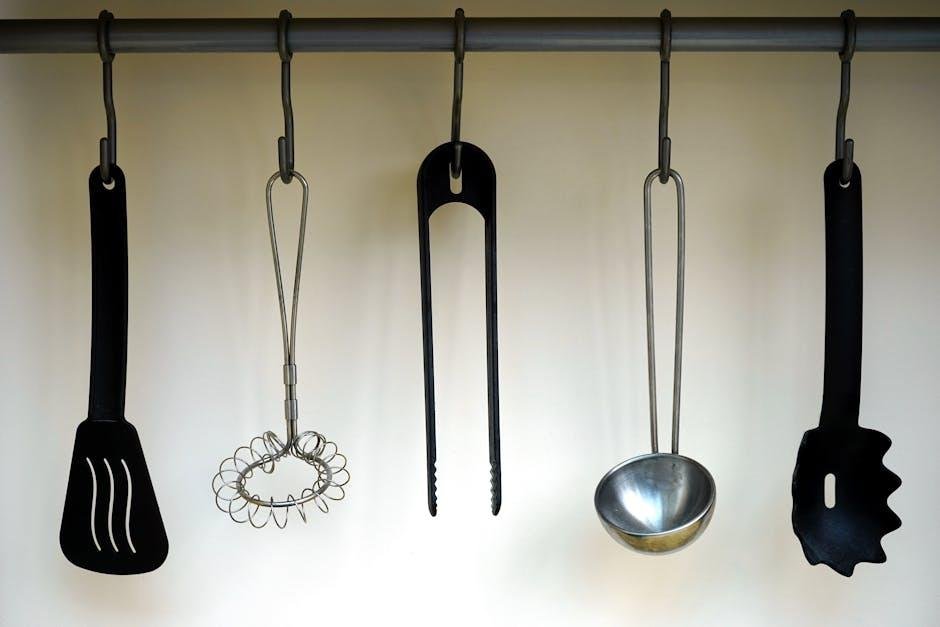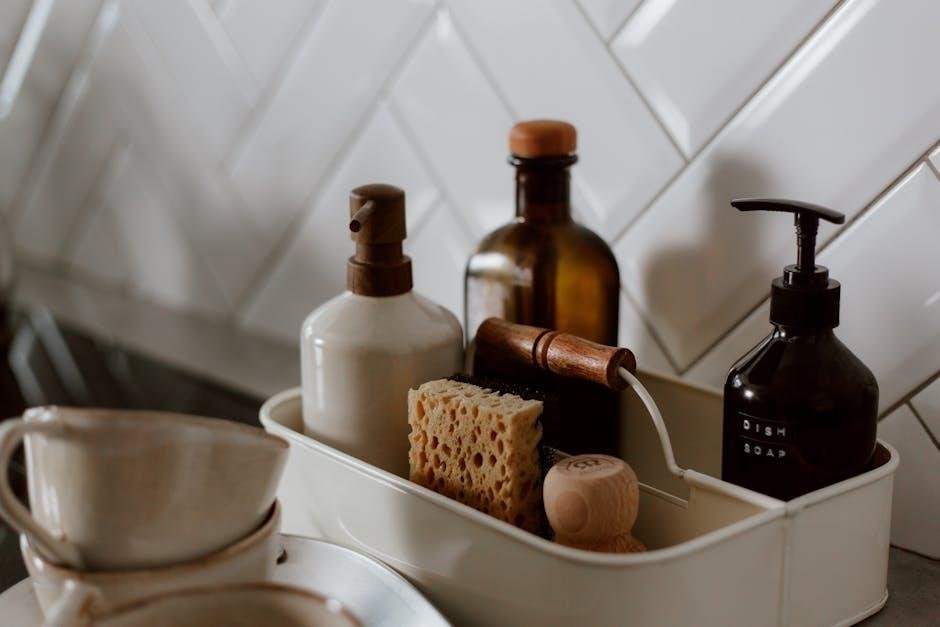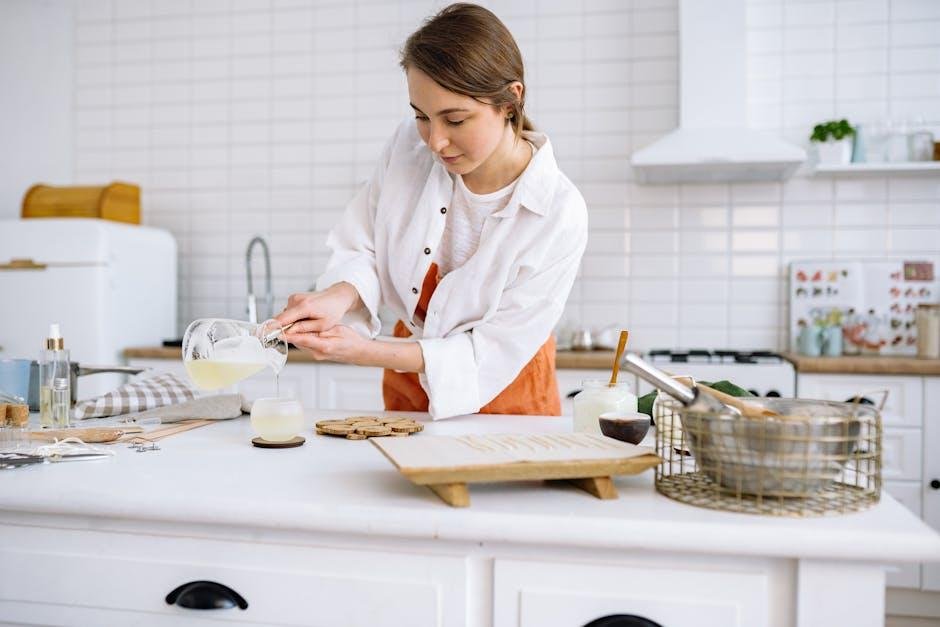In a world increasingly aware of the environmental impact of our daily choices, the kitchen stands out as a vital frontier for change.Every utensil, container, and ingredient we select carries with it the burden of plastic waste, threatening our oceans, wildlife, and even our own health.Yet, amidst the daunting statistics and urgent calls for action, there lies a wealth of innovative, eco-friendly alternatives waiting to transform our culinary spaces. This article dives into the realm of lasting kitchen swaps—exploring practical tools and products that not only reduce plastic usage but also enhance our cooking experience. By embracing these thoughtful substitutions, we can create a kitchen that not only nurtures our bodies but also honors the planet. Join us as we uncover simple yet impactful ways to ditch plastic for good, one swap at a time.
Embracing the change: Understanding the Impact of Plastic in the Kitchen
In our kitchens, the invisible presence of plastic is woven into the very fabric of our daily routines, from storage containers to cooking utensils. The convenience of plastic frequently enough masks its long-term impact on both our health and the environment. As awareness of these issues grows, many are seeking alternatives that emerge from the shift towards a more sustainable lifestyle. By embracing eco-friendly options, we contribute to a healthier planet and promote genuine well-being within our homes.
transitioning to sustainable kitchen tools doesn’t have to be overwhelming. Consider swapping out those plastic items for more environmentally-friendly materials. Here are some practical alternatives to explore:
- Glass Containers: Ideal for food storage and versatile for reheating, glass is a durable and non-toxic option.
- Bamboo Utensils: Naturally antibacterial, bamboo tools add an aesthetic touch while being lightweight.
- Stainless Steel Straws: A reusable alternative that helps reduce single-use plastic waste.
- Beeswax Wraps: Replace plastic wrap with these biodegradable wraps for food storage.
| Plastic Item | Eco-Friendly Alternative |
|---|---|
| plastic Food Containers | Glass or Stainless Steel Containers |
| Plastic Utensils | Bamboo or Silicone Utensils |
| Plastic Sandwich Bags | Reusable Cloth Bags |
| plastic Water Bottles | Stainless Steel or Glass Bottles |

Essential Eco-Friendly Alternatives: Tools and Materials That Make a Difference
Transitioning to a more sustainable kitchen can be an empowering step towards reducing your carbon footprint. Substituting plastic utensils with bamboo or stainless steel options not only decreases waste but also provides a stylish addition to your kitchen tools. As an alternative to plastic bags, reusable beeswax wraps are a fantastic choice for keeping food fresh. They are made from natural ingredients and can be used repeatedly, making them an excellent eco-friendly option for covering bowls or wrapping sandwiches.
Moreover, consider swapping out customary plastic containers for glass or silicone storage solutions. These materials are not only safer for your health but also more durable and long-lasting. For cooking and baking, cast iron and ceramic cookware can replace toxic non-stick surfaces, delivering the performance you need while respecting the environment. Investing in these sustainable materials can significantly impact your kitchen practices, paving the way for greener living.

Smart Shopping Tips: How to Choose Sustainable Kitchen Tools
When transitioning to a more sustainable kitchen, the materials and production practices of the tools you choose significantly impact the environment. Look for items made from renewable resources such as bamboo, stainless steel, and glass, which offer durability and longevity. Prioritize brands that use eco-friendly manufacturing processes and investigate their supply chain transparency. Additionally, consider the full lifecycle of the product; opt for tools that are designed to be recyclable or biodegradable to minimize waste. By purchasing from local artisans or companies committed to sustainability, not only are you supporting ethical practices, but you’re also reducing your carbon footprint through lower transportation emissions.
It’s also crucial to evaluate the functionality of your kitchen tools to ensure they meet your needs while being kind to the planet. Consider the following attributes when making choices:
- Multi-functionality: Select versatile tools that can perform several tasks, reducing the number of items you need.
- Durability: Invest in quality products that will last for years instead of cheap, single-use items.
- Easy Maintenance: Choose tools that can be easily cleaned and maintained; this encourages long-term use.
| Traditional tool | Sustainable Alternative |
|---|---|
| Plastic Cooking Utensils | Bamboo or Stainless Steel Utensils |
| Non-stick Cookware | Cast Iron or Ceramic Cookware |
| Plastic Storage Containers | Glass or Silicone Containers |

Beyond the Basics: Innovative Solutions for a Greener Culinary Space
Transitioning away from plastic in your kitchen doesn’t just benefit the planet; it can also enhance your cooking experience. By opting for eco-friendly alternatives, you can create an atmosphere that promotes sustainability while enriching your culinary adventures. Consider replacing conventional plastic containers with glass or stainless steel options. not only do these materials provide a better seal for freshness, but they also eliminate the risk of chemical leaching that can occur with plastic. Incorporating items like beeswax wraps instead of cling film adds an innovative touch, allowing your produce to breathe while remaining fresh. By bringing in these alternatives, you’re championing a plastic-free kitchen while infusing your space with a sense of modernity and style.
Another avenue to explore is the world of utensils and tools. Investing in bamboo utensils or silicone baking mats can significantly cut down your reliance on plastic. These alternatives are not only durable but also available in a variety of vibrant colors, adding a lively flair to your kitchen. Furthermore, consider upgrading your dishware to compostable materials for those eat-at-home meals or gatherings. To visualize these innovative swaps, here’s a fast reference table comparing traditional kitchen items with their sustainable counterparts:
| Conventional Item | Sustainable Alternative |
|---|---|
| plastic Cutlery | Bamboo Cutlery |
| Plastic Food Wrap | Beeswax Wraps |
| Plastic Storage Containers | glass Containers |
| Plastic Trash Bags | Compostable Bags |
To Wrap It Up
In a world increasingly conscious of our environmental impact, every small change counts. By integrating these sustainable kitchen swaps into your daily routine, you’re not just making an eco-friendly choice but also taking meaningful steps toward a greener future. As you wave goodbye to plastic and embrace versatile, reusable alternatives, remember that each choice reverberates beyond your kitchen—contributing to the well-being of our planet.So, gather your bamboo utensils, swap out that cling film for beeswax wraps, and let your kitchen become a beacon of sustainability. Not only does this shift inspire healthier eating habits and reduce waste,but it also champions a lifestyle that values mindful consumption. Together, we can cook up a cleaner, greener world, one delicious meal at a time. Let’s celebrate these small wins, for they are the seeds of change that can grow into a thriving, eco-friendly future.

